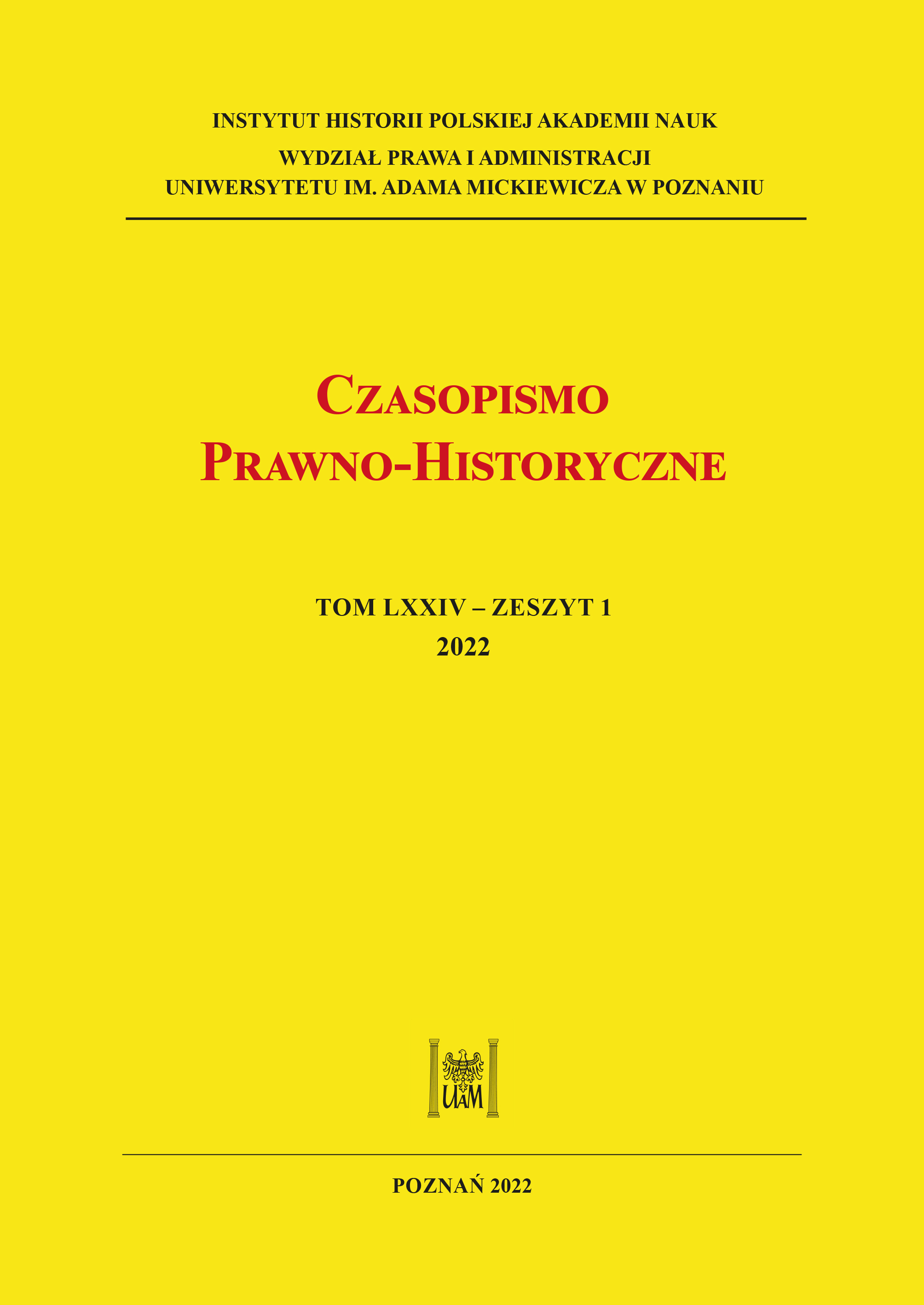Polityka karna w sprawach o wykroczenia w Polsce Ludowej pod rządami kodyfikacji z 1971 r.
CRIMINAL POLICY IN INFRACTION CASES IN THE POLISH PEOPLE’S REPUBLIC WHILE THE CODIFICATION OF 1971 WAS IN FORCE
Author(s): Marcin ŁyskoSubject(s): Law, Constitution, Jurisprudence, Court case
Published by: Uniwersytet Adama Mickiewicza
Keywords: Polish People’s Republic; codification of the infraction law; Minister of Internal Affairs; alternative sentence of imprisonment; boards adjudicating on infractions
Summary/Abstract: The complex codification of the infraction law of the Polish People’s Republic of 1971 contained not only the solutions which were created with the aim of severely punishing the perpetrators of the most serious infractions but also the institutions which made it possible to conduct a liberal criminal policy. However, the practice of employing the codification aimed to gradually make repressions more severe by placing the boards adjudicating on infractions within the structures of the Ministry of Internal Affairs. The adjudicating boards were su-pervised by the Minister of Internal Affairs, who treated the infraction law as a method of persecuting political opponents as well as repressing the remainder of the society. In order to carry out the Minister’s guidelines, the boards meted out such punishments as prison and high fines not only to the perpetrators of infractions which were political in character but also to the perpetrators of numerous infractions against public order. The basic instrument of the criminal policy of repression was the institution of the alternative sentence of imprisonment which, contrary to the punishment of prison, was not subject to judicial review in the 1980s. High fines which could be substituted for the alternative sentence of imprisonment were adjudicated in the form of accelerated proceedings, and they were characterized by immediate enforceability. The repressive character of adjudication, which was characteristic of the Polish People’s Republic, was eased as a result of the political reform of 1990 which was carried out after the fall of the communist system in Poland. The placement of the adjudicating boards within the structure of the Ministry of Justice in conjunction with the abolishment of the institution of guidelines concerning the policy of judicial decisions created the conditions to conduct a liberal criminal policy in the 90s.
Journal: Czasopismo Prawno-Historyczne
- Issue Year: 74/2022
- Issue No: 1
- Page Range: 279-299
- Page Count: 21
- Language: Polish

